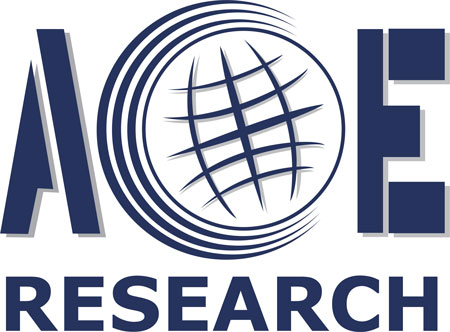As Pakistan’s consumer base grows more diverse, companies are increasingly realizing that one-size-fits-all marketing and product strategies no longer work. The rural-urban divide is a central factor in shaping how people spend, consume, and engage with brands. In this complex dual market, understanding consumer behavior at scale is essential.
Mobile surveys are emerging as one of the most efficient ways to reach, engage, and understand this dual customer base. With widespread mobile phone access across both urban and rural Pakistan, this method is proving to be cost-effective, quick, and capable of delivering valuable insights that reflect the country’s demographic diversity.
Pakistan has one of the largest rural populations in the world. According to the Pakistan Bureau of Statistics, around 61% of the population lives in rural areas, while the remaining 39% resides in urban centers like Karachi, Lahore, and Islamabad.
This divide is not just about geography, it extends to lifestyle, infrastructure, digital access, income levels, literacy, and consumer behavior.
- Urban consumers tend to have higher exposure to digital media, international trends, and branded products. They often use smartphones, shop online, and follow influencers on social media.
- Rural consumers tend to be more value-driven, dependent on local retailers, and influenced by community opinion. Many still rely on feature phones or shared devices and face challenges related to internet access and digital literacy.
Understanding these different behaviors is key for any business hoping to serve the full Pakistani market. not just the portion that lives in major cities.
Why Mobile Surveys?
Mobile surveys are an increasingly popular method in market research, and for good reason. Pakistan’s mobile penetration is high, with over 192 million mobile subscribers as of 2024 (PTA). While internet access is still growing, especially in rural regions, basic mobile connectivity is nearly universal.
Here’s why mobile surveys are particularly useful in the context of Pakistan:
- Wider Reach Across Diverse Locations
Mobile surveys allow researchers to collect data from both urban and rural areas without the logistical difficulties of face-to-face interviews. SMS and IVR (interactive voice response) surveys are especially useful for reaching respondents in remote locations where internet access is limited.
- Low Cost and High Efficiency
Compared to traditional fieldwork, mobile surveys reduce operational costs. There’s no need to hire large field teams, arrange transport, or deal with scheduling issues. This is especially important when working across multiple provinces or hard-to-reach districts.
- Faster Turnaround Times
Mobile surveys can be deployed, completed, and analyzed within days. This allows businesses to respond quickly to market changes and adjust strategies in real time.
- Privacy and Comfort for Respondents
In many rural areas, respondents — especially women — may feel uncomfortable speaking to strangers or answering sensitive questions face-to-face. Mobile surveys allow them to respond privately, at their own pace, and in their local language.
While mobile surveys offer a lot of potential, their effectiveness depends on how they’re designed. Pakistan is home to a variety of regional languages. Surveys in Urdu may work in most urban areas, but for rural audiences, regional languages like Punjabi, Sindhi, Pashto, and Balochi should be considered. For low-literacy populations, IVR surveys (where questions are spoken aloud) are more effective than text-based methods. Survey fatigue is real, especially in rural areas where people may have less time or interest in lengthy questionnaires. Questions should be clear, short, and direct, and ideally take no more than 3–5 minutes to complete.
Urban consumers are more likely to have smartphones and use apps like WhatsApp. In contrast, rural consumers may rely on feature phones. SMS and IVR are better suited to these populations. Offering multiple survey modes helps ensure inclusivity. Even small incentives, like mobile airtime or data packages, can increase response rates. especially in rural areas where such rewards are more meaningful. Incentives should be transparent and delivered promptly.
As with any form of research in Pakistan, cultural sensitivity is essential. Researchers must be mindful of local customs, religious practices, gender norms, and social hierarchies. For example, asking direct questions about income may be uncomfortable in rural settings, female respondents in conservative areas may prefer to answer questions via IVR rather than speak to a male enumerator, Certain product categories (e.g. insurance, or entertainment) may need carefully worded questions.
Best practices include:
- Obtaining clear and informed consent.
- Offering surveys in regional languages.
- Ensuring anonymity and data protection.
- Being transparent about how data will be used.
This not only improves data quality but also helps build trust between researchers and participants.
As mobile technology continues to evolve in Pakistan, mobile surveys are likely to become even more powerful.
Future innovations may include:
- Geo-targeted surveys that respond to location-specific events.
- Voice-based surveys in multiple dialects using AI-driven speech recognition.
- Multimedia surveys (for smartphone users) including images or audio clips.
- Real-time dashboards to help companies visualize and respond to live data.
By combining mobile surveys with other digital tools like WhatsApp feedback groups, mobile payment data, or social media analytics, companies can build a holistic understanding of both rural and urban markets.
Pakistan’s rural and urban consumers are not just two sides of the same coin, they represent distinct cultures, and needs. Businesses that wish to thrive nationally must develop insights that reflect this diversity. Mobile surveys are one of the most effective ways to reach and understand these dual markets. They are affordable, accessible, and adaptable to Pakistan’s unique social fabric. When used thoughtfully and ethically, they offer a real chance to democratize consumer insight, giving a voice not only to the loudest markets but also to those often overlooked.
As Pakistan continues to digitize, and mobile technology becomes even more widespread, companies that invest in inclusive, mobile-first research will be best positioned to serve the needs of tomorrow’s consumer, wherever they may live.

